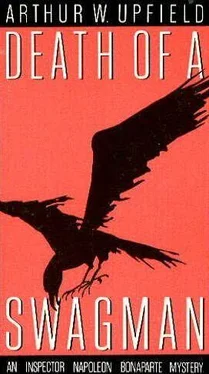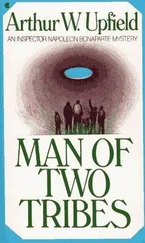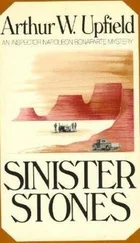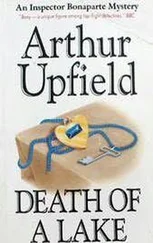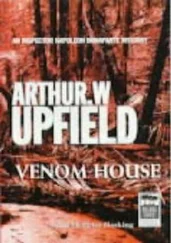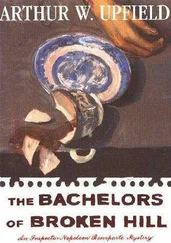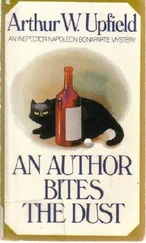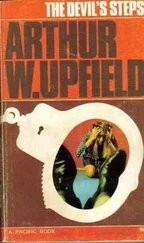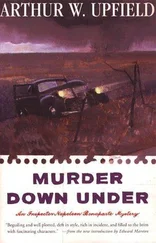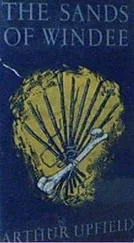Arthur Upfield - Death of a Swagman
Здесь есть возможность читать онлайн «Arthur Upfield - Death of a Swagman» весь текст электронной книги совершенно бесплатно (целиком полную версию без сокращений). В некоторых случаях можно слушать аудио, скачать через торрент в формате fb2 и присутствует краткое содержание. Жанр: Классический детектив, на английском языке. Описание произведения, (предисловие) а так же отзывы посетителей доступны на портале библиотеки ЛибКат.
- Название:Death of a Swagman
- Автор:
- Жанр:
- Год:неизвестен
- ISBN:нет данных
- Рейтинг книги:4 / 5. Голосов: 1
-
Избранное:Добавить в избранное
- Отзывы:
-
Ваша оценка:
- 80
- 1
- 2
- 3
- 4
- 5
Death of a Swagman: краткое содержание, описание и аннотация
Предлагаем к чтению аннотацию, описание, краткое содержание или предисловие (зависит от того, что написал сам автор книги «Death of a Swagman»). Если вы не нашли необходимую информацию о книге — напишите в комментариях, мы постараемся отыскать её.
Death of a Swagman — читать онлайн бесплатно полную книгу (весь текст) целиком
Ниже представлен текст книги, разбитый по страницам. Система сохранения места последней прочитанной страницы, позволяет с удобством читать онлайн бесплатно книгу «Death of a Swagman», без необходимости каждый раз заново искать на чём Вы остановились. Поставьте закладку, и сможете в любой момент перейти на страницу, на которой закончили чтение.
Интервал:
Закладка:
Arthur W. Upfield
Death of a Swagman
Merino and Rose Marie
NO GANGS of yellow men carrying earth and rubble in baskets, no human chains of men and women, and even children, carrying stones in their lacerated arms, built these Walls of China. No Emperor Ch’in Shih Huang Ti directed over a million men to raise this extraordinary barrier lying athwart the bushlands in the south-west corner of the state of New South Wales. The colour of the country is reddish-brown, and upon this reddish-brown land the soft fingers of the wind built a wall of snow-white sand some twelve miles long, three-quarters of a mile wide, and several hundred feet high. No one knows when the wind laboured so mightily to build the barrier, and no one knows who named it the Walls of China.
On the morning of October twelfth, in an isolated hut lying within the sunrise shadow of the Walls of China, the body of a stockman named George Kendall was found in circumstances plainly indicating the act of homicide. Following the discovery, Detective Sergeant Redman arrived at Merino, a township three miles westward of the hut and the Walls of China. With him in the car were an official photographer and a fingerprint expert. They were driven to the police station in the view of the excited inhabitants, and in the course of the investigations questioned and cross-questioned all and sundry, took pictures of the scene of the crime, and reproduced fingerprints left on objects within the hut.
The arrival of Detective Inspector Bonaparte, alias Bony to his friends, was in marked contrast. His interest had been captured by the statements and documents compiled by Detective Sergeant Redman, and he drifted into Merino six weeks later in the guise of a stockman seeking a job. At the only hotel he drank a couple of deep-noserswith the licensee, then parked himself on the bench on the hotel veranda and proceeded to smoke his atrociously made cigarettes.
Merino is not markedly dissimilar to any of a dozen townships in the western half of New South Wales. Its houses, its shops and government buildings are all constructed with wood, iron, and tin, the only effort to beautify the place having been the planting of pepper-trees along the borders of the one formed street. Some eighty people only, including children, were living in Merino when Bony visited the place to look into the death of George Kendall.
What had induced the early settlers to found this township puzzled even Bony, who was interested in such matters. Its site was on the eastern slope of a vast land swell. The track from Mildura came over the broad summit and down the gentle slope for more than a mile, to pass the two large dams which supplied the township with water and the windmill which provided water for travelling stock. Then it continued for another mile until it reached the western and upper end of the main street. Passing through the township, it flowed gently down the slope for two miles, where it turned sharply to the north as though aware that it could never flow up and over the great rampart of snow-white sand known as the Walls of China.
The hotel was the first abode to welcome the traveller from Mildura. From its veranda Bony was able to gaze down the street, between the twin lines of pepper-trees, and to view the huge range of sand humped and peaked in snowy whiteness in this land of red-brown earth.
Opposite the hotel stood the corrugated iron garage owned, as announced by red lettering on a white board above the open front, by an Alfred Jason who also was a wheelwright and a funeral director. His house stood next to the garage and farther back from the street, and then came the compound in which was the police station, the stables and the small lockup, and a small building which had done service as the morgue. Still lower down the street could be seen the fronts of shops and, on Bony’s side, the school and the church.
The afternoon was warm, and he had walked far this day, so he composed his body full length along the bench, his swag for a headrest, and fell asleep before deciding whether to make himself known to the senior police officer or to work incognito on what he was sure was going to be an interesting investigation.
He was awakened by a hard voice asking:
“What’s your name?”
Like that of his maternal progenitors, Bony’s mind became fully active the instant he awoke, but he opened only one eye to observe a uniformed policeman looking down at him with disapproval writ plainly on his large, weather-tinted face.
“Hey! You! What’s your name?”
“Robert Burns,” replied Bony languidly, before yawning. “Go away.”
The request to depart was less irritating than the yawn to the policeman, who ranked as sergeant. The irritation was excusable, because Sergeant Marshall had never become accustomed to being yawned at by stockmen who slept during daylight hours on benches outside licensed premises.
The front of Bony’s shirt was gathered into a huge fist and he was lifted bodily to his feet. The sergeant’s bulk dwarfed him.
With the upper part of his left arm held in a humanvise, Bony was urged across the street to the police station. In the office a mounted constable, minus his tunic, was pounding on a typewriter.
“Keep your eye on this bird of passage, Gleeson,” ordered the sergeant. The constable rose to stand beside the prisoner. His superior sat down at his own desk and wrote rapidly on an official form. Then he said:
“You are charged with (a) giving fictitious answers to lawful questions put to you by a police officer, (b) being insolent to a police officer in the execution of his duty, (c) having no visible means of support, and (d) loitering outside a licensed premises. Lock him up, Gleeson.”
“There is an (e) within brackets but I had better not mention it,” Bony could not resist pointing out, and then another humanvise became clamped about his upper arm and he was conducted to one of two whitewashed cells in a building at the rear of the station. The constable heard him laughing as he walked back to his typewriter.
Bony sat down on the broad bench which was to serve him as a bed. His clear blue eyes were bright and twinkling with mirth whilst his long slim fingers made a cigarette with the usual hump in the middle. Often had he been threatened with arrest by policemen who knew him only as a station hand, but this was the first time he had been jailed. His cell was clean but too warm for comfort beneath its iron roof, the air being admitted only through a barred opening in the roof and a small iron grille in the door. Philosophically he placed his swag of blankets and personal gear as a pillow for his head and laid himself along the bench and smoked whilst pondering on the advisability or otherwise of presenting his credentials to Sergeant Marshall. Eventually he would have to do so, but there were certain advantages to be gained by remaining incognito for a week or so.
He had been there for probably an hour when he heard movement outside the door as though a box or case was being placed against it. A moment later he saw a pair of large dark grey eyes gazing steadily at him through the grille. He swung his feet off the bench and sat up.
“Good afternoon,” he said politely.
The steady appraisal continued, inquiring, assessing. Bony stood, whereupon a sweetly childish voice ordered:
“Stay where you are or I’ll go away.”
“Very well,” he said, and sat down. “Now that you have looked me over carefully enough, what do you think of me?”
“What’s your name?”came the faint echo of the sergeant’s voice.
“Bony.”
“Bony! Bony what?”
“Just Bony. Everyone calls me Bony. What’s yours?”
“I am Rose Marie. I’m eight. My father’s a policeman.”
“Rose Marie,” Bony repeated slowly. “What a beautiful name.”
Читать дальшеИнтервал:
Закладка:
Похожие книги на «Death of a Swagman»
Представляем Вашему вниманию похожие книги на «Death of a Swagman» списком для выбора. Мы отобрали схожую по названию и смыслу литературу в надежде предоставить читателям больше вариантов отыскать новые, интересные, ещё непрочитанные произведения.
Обсуждение, отзывы о книге «Death of a Swagman» и просто собственные мнения читателей. Оставьте ваши комментарии, напишите, что Вы думаете о произведении, его смысле или главных героях. Укажите что конкретно понравилось, а что нет, и почему Вы так считаете.
